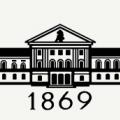
Ensuring Democratic Control of Armed Forces – The Enduring Challenges
Publication Type:
Journal ArticleSource:
Connections: The Quarterly Journal, Volume 22, Issue 1, p.29-52 (2023)Keywords:
accountability, democratic control, governance, oversight, parliamentary control, security sector reform, TransparencyAbstract:
Armed forces constitute the foundation for the defense and security of their societies. They protect against external threats and, when required, provide coercive power. As a corporate body, they play a prominent role in the ordering of the nation’s affairs, in the development of national security policy, and in the allocation of national resources. Their role is guided by a single principle: their subordination to democratically elected political leadership. This democratic control ensures they serve the societies they protect.
This article identifies the key elements needed to ensure effective democratic control. It examines the role of the executive in the organization and employment of the armed forces and the legislature in providing oversight and accountability. The tensions in defining competence and responsibility where the political and military worlds and perspectives intersect are alleviated in the process of fusion, collision, or reconciliation at all levels, from policy to operations. Democratic control must reflect societal developments as in the influence of information technology or the impressive “genderization” of defense and security. Two decades of transition in Europe have shown that democratic control is a process in which each country adapts the basic principles to its own circumstances.
- 5167 reads
- Google Scholar
- DOI
- RTF
- EndNote XML






